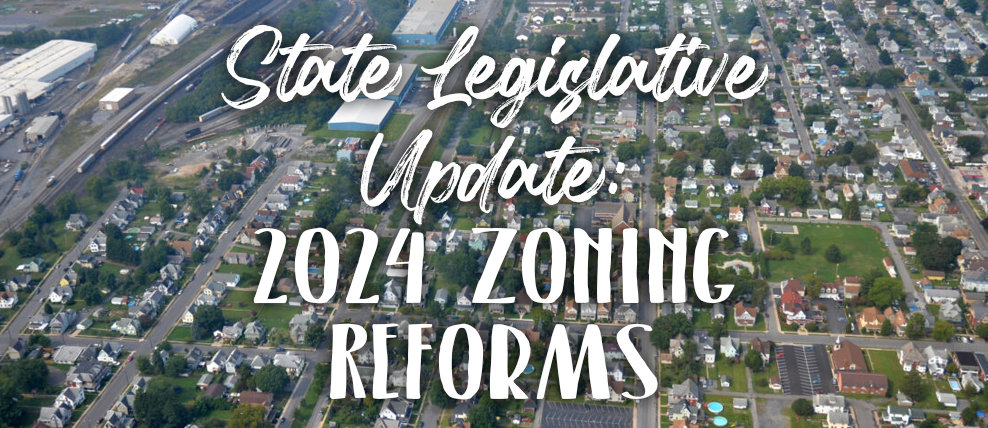
Legislatures in Arizona, Colorado, and Rhode Island are building on the zoning reform achievements of the 2023 legislative sessions in other states to implement zoning reforms. Meanwhile, zoning reform attempts in other states have fallen short, but legislators remain optimistic about achieving success in 2025.
Below is a state-by-state overview of zoning reforms enacted to-date, as well as several measures that have stalled in the states:
Arizona
Despite initial vetoes by Arizona Governor Hobbs, reform advocates managed to secure the passage of two significant bills. The first bill establishes statewide standards by legalizing accessory dwelling units (ADUs) in single-family residential neighborhoods. The other bill signed into law allows for the construction of duplexes, triplexes, fourplexes, and townhomes within Arizona’s central cities and large new developments—an area missing in many cities today. A bill that would have prevented municipalities from imposing square footage minimums or minimum lot sizes, and another that would have banned architectural requirements and aesthetic mandates, both failed to pass.
Colorado
Colorado passed several zoning reform bills, including one that requires local governments to amend zoning laws to allow housing at a density of at least 40 units per acre within a quarter-mile of bus stops and a half-mile of rail stations. This primarily affects the Denver metropolitan area. Another bill broadly legalizes ADUs across Colorado and prevents cities from enacting policies that make them infeasible in practice. A third bill eliminates parking mandates for multifamily residential properties or mixed-use properties that are primarily residential if they are within a quarter-mile of a certain types of transit stops. Finally, another bill mandates that most local governments in communities with over 1,000 people submit an assessment of housing needs to the state. Technical guidelines for these assessments will be developed by the end of this year.
Rhode Island
In Rhode Island, a series of ambitious zoning reforms aimed to streamline the zoning and permitting process and allow for manufactured homes in single-family zoning districts ultimately stalled. Another bill that allowed Rhode Islanders to develop accessory dwelling units (ADUs) on their property did pass. This bill grants homeowners the right to develop a single ADU on an owner-occupied property on any lot larger than 20,000 square feet. It is designed to encourage the development of rental units that are likely to be more affordable than many other apartments, provided the units are not used for short-term rentals.
Other U.S. states
Despite these successes, a handful of states have seen bills stall in their legislative chambers this year. For example, in Minnesota, a bill that proposed to end single-family zoning, limit parking mandates, and promote dense housing development in commercial areas failed. In Utah, a bill that would have required most cities and towns to allow up to eight homes per acre if the new homes met specific criteria also failed.
A grassroots movement is gaining traction nationwide to enact creative solutions to the nation’s affordable housing crisis. Proponents argue that increasing the number of housing units at lower price points will help address supply and demand issues. Critics are concerned, however, about potential decreases in property values and increased congestion.

